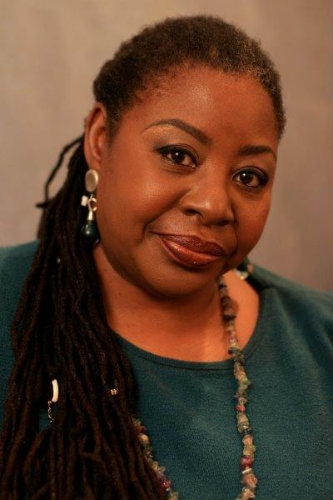Reproductive justice activist to speak at Lehigh
Loretta Ross, a leading activist in the area of reproductive justice, will speak at Lehigh at 7:30 p.m. Tuesday, Sept. 22, in Williams Hall, Global Commons. Her talk, which is sponsored by the Women’s, Gender, and Sexuality Studies academic program and the Women’s Center, aims to raise awareness on campus about reproductive justice. It is also supported by Lehigh’s MLK Committee, which is planning a year-long series of programming focused on activism, as well as several other offices, institutes and organizations across campus (see complete listing of sponsors in below).
A writer, activist, and sought-after speaker, Ross is the co-founder and national coordinator of the SisterSong Women of Color Reproductive Justice Collective and a leading national voice in calling for more nuanced conversations about reproductive justice in the context of race, sexuality and social class.
According to Monica Miller, assistant professor of Religion and Africana Studies, the genesis of this event is rooted in an activism project undertaken by two undergraduate students in assistant professor Suzanne Edwards’s Introduction to Women’s, Gender, and Sexuality Studies course in Spring 2014. Through their research, students Emma Hillman ‘16 and Collier Sutter ’17, came to the realization that students on Lehigh’s campus were largely uninformed about the movement for reproductive justice and developed a plan to raise awareness and promote dialogue about these issues.
Hillman said that she and Collier grew more passionate about the subject of reproductive justice as they learned more through their research.
“We wanted to focus our activism on Lehigh's campus. However, we learned a larger activism project was needed to raise awareness on this important topic,” said Hillman, who also hosted two discussions on the topic while an intern in the Women’s Center.
Hillman and Collier joined with fellow student Shannon Hendricks to work on their project. Through their internships in the Women’s Center, they met with student groups to educate them about reproductive justice and to build an audience for Loretta Ross’s visit.
Said Edwards: “This event showcases what Lehigh students can do as they take what they learn in the academic classroom and bring it to life on campus and beyond. Ross is a towering figure in the activist world around issues of race/gender/class/reproductive justice, and these students are providing a great service to their fellow students by having her share her views.”
In addition to her talk in Williams Hall, Ross is also expected to visit a class and meet with students and faculty.
“Her experience as an activist and her skill at fostering discussion makes her an ideal choice for this event,” said Edwards, who anticipates attendance from undergraduate students, graduate students, faculty and community partners such as the Allentown Women’s Center and Turning Point of the Lehigh Valley.
Rita Jones, director of Lehigh’s Women’s Center, said students not only need to hear Ross speak, but want to as well.
“Students in college right now are quite aware of how they are individuals with multiple identities, and if one identity is threatened or silenced, they recognize it's going to be bad for their whole self,” Jones said. “Ross wants everyone to have those multiple identities intact and lived as they wish them to. Just from casual conversations with students, I know they are aware of what's happening surrounding reproductive justice—the right to have or not have children and to parent children in a safe, healthy environment—and many are concerned, from the high rate of maternal mortality among black women in the U.S. to curbs surrounding access to birth control. Attending Ross's lecture will give students the tools, the words and the spark to take action on what they believe.”
In addition to WGSS, the Women’s Center and the MLK Committee, co-sponsors include Africana Studies, the associate dean of Interdisciplinary Programs and International Initiatives, the Center for Community Engagement, the Dialogue Center, the Humanities Center, the Office of Academic Diversity, the Office of Gender Violence Education and Support, the Office of Multicultural Affairs, the Pride Center and the Health, Medicine & Society program.
Posted on:


